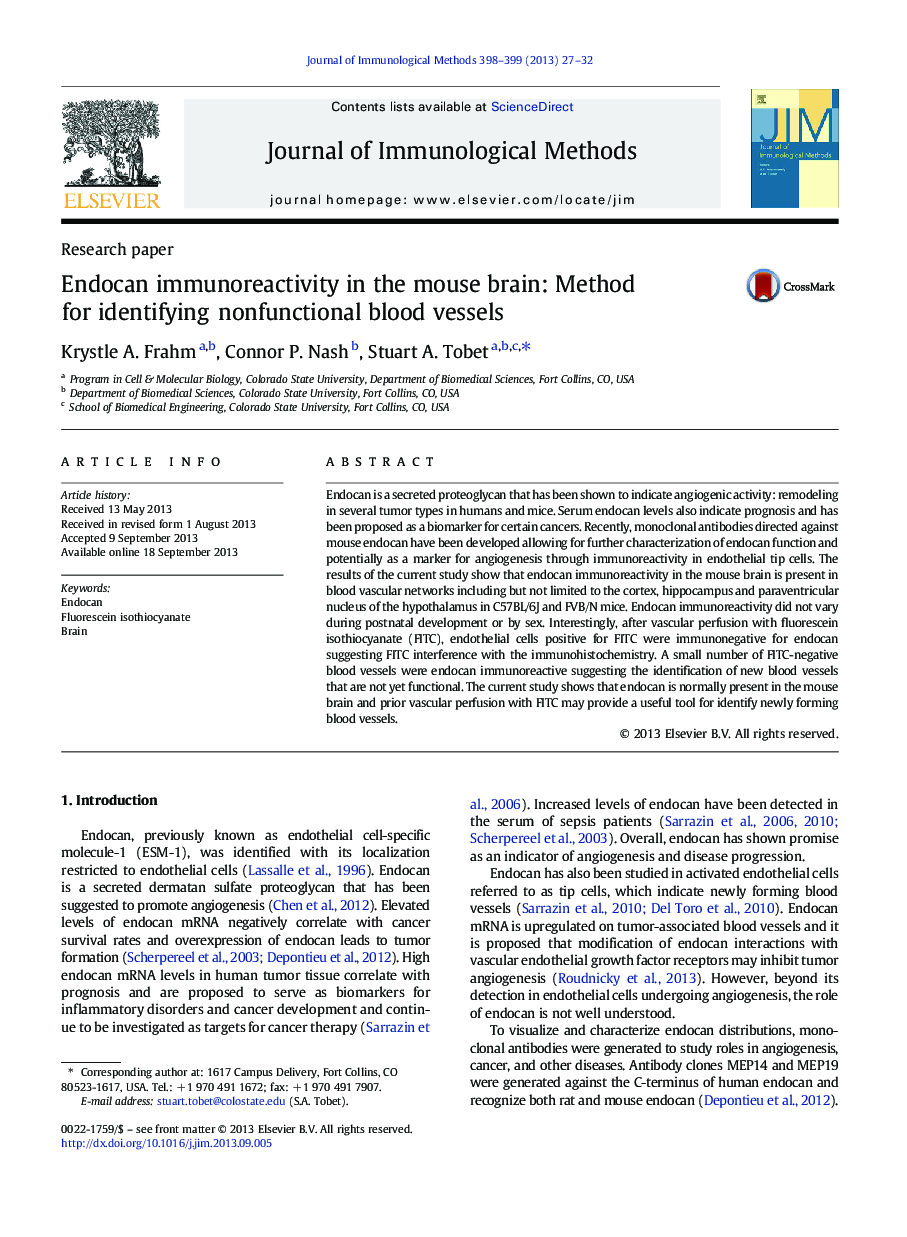| Article ID | Journal | Published Year | Pages | File Type |
|---|---|---|---|---|
| 2088255 | Journal of Immunological Methods | 2013 | 6 Pages |
Abstract
Endocan is a secreted proteoglycan that has been shown to indicate angiogenic activity: remodeling in several tumor types in humans and mice. Serum endocan levels also indicate prognosis and has been proposed as a biomarker for certain cancers. Recently, monoclonal antibodies directed against mouse endocan have been developed allowing for further characterization of endocan function and potentially as a marker for angiogenesis through immunoreactivity in endothelial tip cells. The results of the current study show that endocan immunoreactivity in the mouse brain is present in blood vascular networks including but not limited to the cortex, hippocampus and paraventricular nucleus of the hypothalamus in C57BL/6J and FVB/N mice. Endocan immunoreactivity did not vary during postnatal development or by sex. Interestingly, after vascular perfusion with fluorescein isothiocyanate (FITC), endothelial cells positive for FITC were immunonegative for endocan suggesting FITC interference with the immunohistochemistry. A small number of FITC-negative blood vessels were endocan immunoreactive suggesting the identification of new blood vessels that are not yet functional. The current study shows that endocan is normally present in the mouse brain and prior vascular perfusion with FITC may provide a useful tool for identify newly forming blood vessels.
Related Topics
Life Sciences
Biochemistry, Genetics and Molecular Biology
Biotechnology
Authors
Krystle A. Frahm, Connor P. Nash, Stuart A. Tobet,
